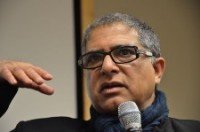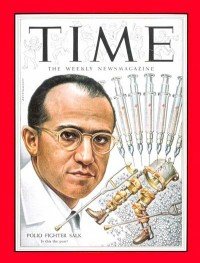I seriously enjoy learning something new every day, and what I enjoy most is learning what it is I am going to be learning about each day. You with me? For example, just yesterday morning, I was getting my day started with a cup of morning joe and had an inclination to Google “spirituality videos.” A link to a Deepak Chopra presentation surfaced near the top and I launched it.

Best selling author, Deepak Chopra believes ideas like “survival of the wisest” will help to bridge the gap between science and religion. But, Deepak was not the first to turn the phrase.
The presentation centered around the content in his most recent book, Reinventing the Body, Resurrecting the Soul: How To Create A New You. I watched for a bit, then let the audio run as I began getting my day organized. During the Q&A portion late in the video, in response to a question, Deepak used the phrase “survival of the wisest.” I had never heard this phrase being used before and it immediately fired my imagination. I knew instantly it was going to be the title of a new blog article.
Like millions of others, I appreciate Chopra’s contributions to the collective evolutionary dialogue, particularly the places where he bridges the gaps in understanding between science and God, or on a more general level, science and spirituality. Since Darwin, perhaps the single most controversial and contentious dialogue between science and religion has formed around belief in either evolution or creationism. That battleground is still wildly active in the ongoing debates around public school textbooks and science teaching curriculums.

Fundamentalists believe that reason is the enemy of faith, which is not a reasonable position to hold if we are going to prove the existence of God.
For me, the insistence on literal belief in the creation story as depicted in Genesis as a litmus test for faith in God is fraught with controversy and defies reason. I wholeheartedly reject the notion that God intended for humans to abdicate their power of reason and accept such ideas on blind faith, especially when they defy reason. I believe our reasoning faculty is divinely intended for our use in proving the existence of God, or Divine Intelligence, or whatever name you feel comfortable attributing to the Universal Mind within which all of this theater is being played out.
Just because I don’t literally believe in the Creation story does not mean I do not believe in God. These are not the same thing. For the record, despite moments in my life where I questioned and even doubted, I know that I absolutely believe in God and much of that belief is grounded in my faith. However, faith itself is not enough. I have always been curious and prefer exploring source material directly and making up my own mind, rather than just simply believing what I am being told to believe. For the most part, I have been seeking the proof for God’s existence, not the other way around.
While I do feel that some aspects of Darwin’s work on the “origin of species” do move the ball forward in our understanding of God, I am no more a “literal” Darwinist than I am a literal creationist. Among other things, I find Darwin’s “survival of the fittest” idea to be, at best, unsettling and, at its worst, an absolutely brutal indictment of nature, and in particular the nature of man. Further, this “evolutionary” idea unwittingly lends scientific credibility to those who would seek to exploit the planet. In other words, being a literal Darwinist could be used as justification for all manner of atrocity, even genocide, on the basis those being exterminated were not “fit” enough to survive. This, like literal creationism, also defies reason.

In the wake of his polio vaccine, Jonas Salk achieved world fame to rival any celebrity, long before his 1973 book “Survival Of The Wisest.”
Fortunately, for mankind and the future of the planet, we have advanced teachers like Deepak Chopra who are building bridges into the future by advancing the dialogue with ideas like “survival of the wisest.” However, (and here is what I learned new today), Deepak wasn’t the first to utter this evolutionary phrase. It was Jonas Salk, the world renowned researcher and virologist who discovered and perfected the first polio vaccine. In fact, Salk published an entire book titled “Survival of the Wisest” in 1973, articulating his ideas.
It may be hard to imagine today, but in the era when Salk perfected the polio vaccine, he enjoyed a celebrity rivaled only by presidents and heads of state. There is no way to overestimate his contribution to the world with just this one discovery. However, he continued to perform vital work for the remainder of his life, even working on AIDS research in the 1980’s. But, he was also a visionary thinker, and his ideas are still being discussed down to this day.
Tune in tomorrow to find out what I learned about Salk’s ideas on “survival of the wisest” and how they are beginning to permeate our evolving ideas about evolution.
Stay Tuned In…
